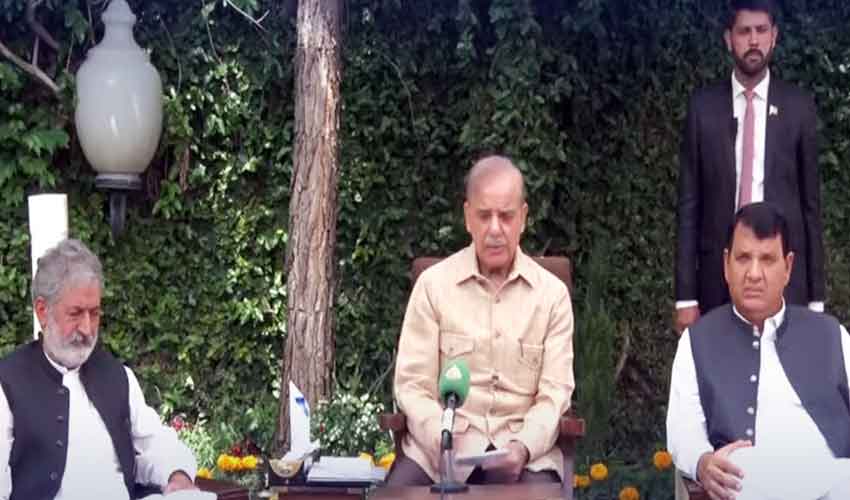PM thanks army chief Gen Asim Munir for helping eliminate smuggling
Shehbaz says economy cannot be strengthened without ending smuggling
Shehbaz says economy cannot be strengthened without ending smuggling
Green shirts make 4 changes after spree of injuries
Gross domestic product increased at a 1.6% annualized rate last quarter
Sources reveals partial payments have been made to some employees
Eight officers laid their lives in the line of duty in two separate incidents
PU VC Dr Khalid Mahmood says it is the responsibility of teachers and universities to educate society
Irfan Mehsud says he asked for equipment for club, officials started bargaining for Rs200,000
District magistrate orders the arrested woman to be produced before court again on May 9
Since Ayesha's health is stable, she is free to go back to Pakistan
Shehbaz says economy cannot be strengthened without ending smuggling
Shehbaz asks businessmen to treat upcoming Saudi investors delegation to nihari, kababs
Court annuls ECP decision to order re-election at 12 polling stations of PB-51 Chaman constituency
Pakistan Autism Society says there are approximately 350,000 children suffering from autism disorder in country
Jacen Russell-Rowe sealed victory for Columbus
A case has been registered against the accused and the investigation is underway.
Gross domestic product increased at a 1.6% annualized rate last quarter
Green shirts make 4 changes after spree of injuries
Shehbaz asks businessmen to treat upcoming Saudi investors delegation to nihari, kababs
This battery is suitable for usage in smartphones as well as electric vehicles
It is the most recent confrontation between the police and students, who are angry over large number of people dying in Israel's war with Hamas
Since Ayesha's health is stable, she is free to go back to Pakistan
Study discovers that sound coming from a disturbed plant could be heard over a meter away
Implementing reporting standards 18 has its challenges, but offers long-term benefits

